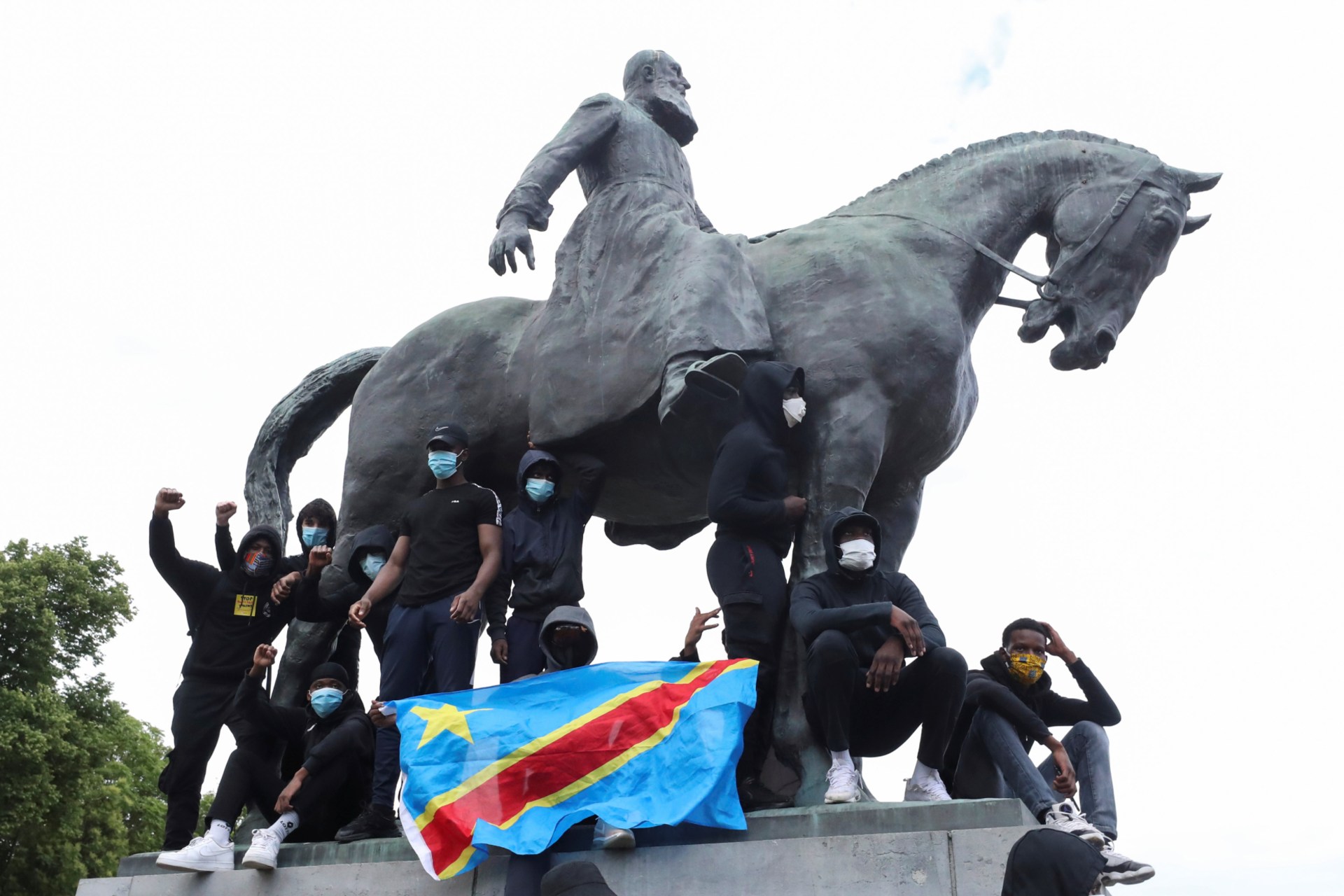George Floyd’s Murder Revives Anti-Colonialism in Western Europe

By experts and staff
- Published
By
- John CampbellRalph Bunche Senior Fellow for Africa Policy Studies
- Jack McCaslinResearch Associate, Africa Policy
The murder of George Floyd by a policeman and the ensuing protests against racism and police brutality in the United States have ignited similar protests in Europe. Large crowds, especially in the United Kingdom, France, and Belgium, are demanding public acknowledgment of the links among slavery, European colonialism, and contemporary racism. European protesters, perhaps in solidarity with Americans, have borrowed anti-police rhetoric. But, with the exception of the French, by and large, European protestors tie racial abuse in their own countries not so much to the police but to the persistence of the glorification of colonialism or, at best, a collective amnesia about its effects.
In the United States, Black Lives Matter protestors are calling for the removal of statues of Confederate leaders, and many have since been removed. In Europe, protestors are calling for the removal of statues glorifying men made famous or rich by the slave trade and colonialism. In Belgium, statues of King Leopold II, whose personal, brutal rule of Congo may have caused the deaths of up to half of the territory’s population, are being defaced, and some have been removed. In the United Kingdom, protestors pulled down a statue of Edward Colston, (1636–1721), an official of the Royal Africa Company that transported an estimated 84,000 Africans to slavery in the Caribbean and the mainland British colonies, perhaps 20,000 of whom died in the notorious “Middle Passage.” His extensive, local philanthropy was built on the profits of the slave trade. A statue of Winston S. Churchill opposite the Houses of Parliament was vandalized because of his advocacy of the empire and colonialism, and his personal racism. There are calls in the United Kingdom for the erasure of Cecil Rhodes’s name from public institutions. Student-led protests, dubbed #RhodesMustFall, led to the removal of his statue in 2015 at the University of Cape Town in South Africa. However, there is probably greater public support for the removal of reminders of slavery in the United States than there is in Europe with respect to colonialism. Already in the United Kingdom, there has been a backlash against attacks on national heroes such as Winston Churchill.
Though Britain, France, and the other European states abolished slavery in the nineteenth century, they nevertheless carved up much of the (non-white) world among themselves. In Europe as in America, racism often provided the intellectual justification for colonial rule and white supremacy, and accounted for their popularity among the general public. Reflecting little understanding of Charles Darwin and “natural selection,” the common presumption was that each “race,” mostly defined by skin color and other obvious physical characteristics, had an objective, fundamental “character,” and there was a “natural” hierarchy with whites at the top, blacks, at the bottom, and “browns” (mostly in Britain’s Indian Empire) in between.
America is now attempting to come to terms with how slavery and racial segregation remains central to the Black experience today. In a similar vein, European colonialism is central to understanding African countries, almost all of which were former European colonies. American legal emancipation in 1865 and the ending of legal segregation a century later did not erase the lasting damage they caused. African independence after 1960 has not undone the consequences of colonialism. As influential Nigerian academic Peter Ekeh wrote, “Our post-colonial present has been fashioned by our colonial past.” The anti-colonial dimension in the European demonstrations ignited by George Floyd are a welcome acknowledgement of that reality.